Greg Van Patten’s life has revolved around science. As a youngster, he was fascinated with insects — “whatever I could find in my backyard” — dinosaurs and by French oceanographer Jacques Cousteau’s work airing on television. Van Patten admits if his dream had not been interrupted, he would be a marine biologist rather than a chemistry professor-turned-dean for the Middle Tennessee State University College of Basic and Applied Sciences.
The Abilene, Texas, native “moved around a lot” — Texas, Arkansas and Georgia — growing up. Van Patten earned his bachelor’s degree from the University of Virginia and doctorate from the University of South Carolina. His expertise: physical chemistry, nanomaterials, surface chemistry, ultrafast spectroscopy and photophysics.
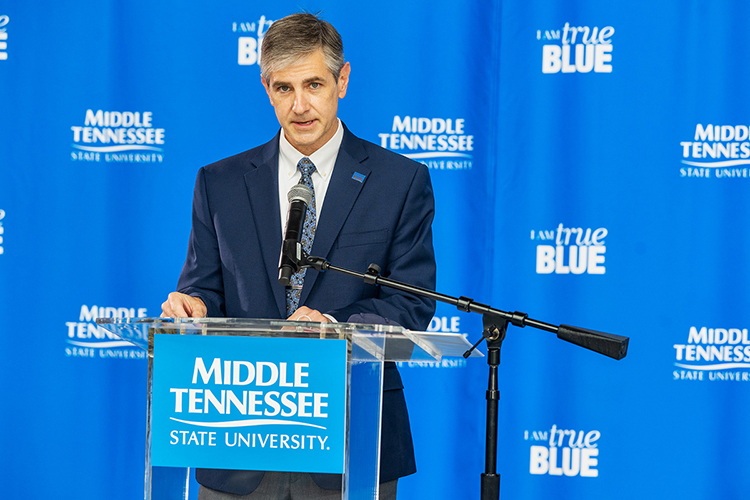
A Murfreesboro resident, Van Patten landed at MTSU in 2012 as Chemistry Department chair, two years before the $147 million Science Building opened.
Provost Mark Byrnes appointed him permanent dean in spring ’22 following a national search for MTSU’s largest college. Van Patten and his wife, Meg, a real estate agent, have three adult children.
The College of Basic and Applied Sciences, or CBAS, features 4,000-plus undergraduate students, 400-plus graduate students and a $35.1 million operating budget. There’s 400 faculty and staff. Students can choose from 11 departments — Aerospace, Agriculture, Biology, Chemistry, Computer Science, Concrete and Construction Management, Engineering Technology, Geosciences, Mathematical Sciences, Military Science and Physics and Astronomy — and dozens of programs. Along with six specialized centers, CBAS has initiated interdisciplinary undergraduate and graduate programs in Data Science.
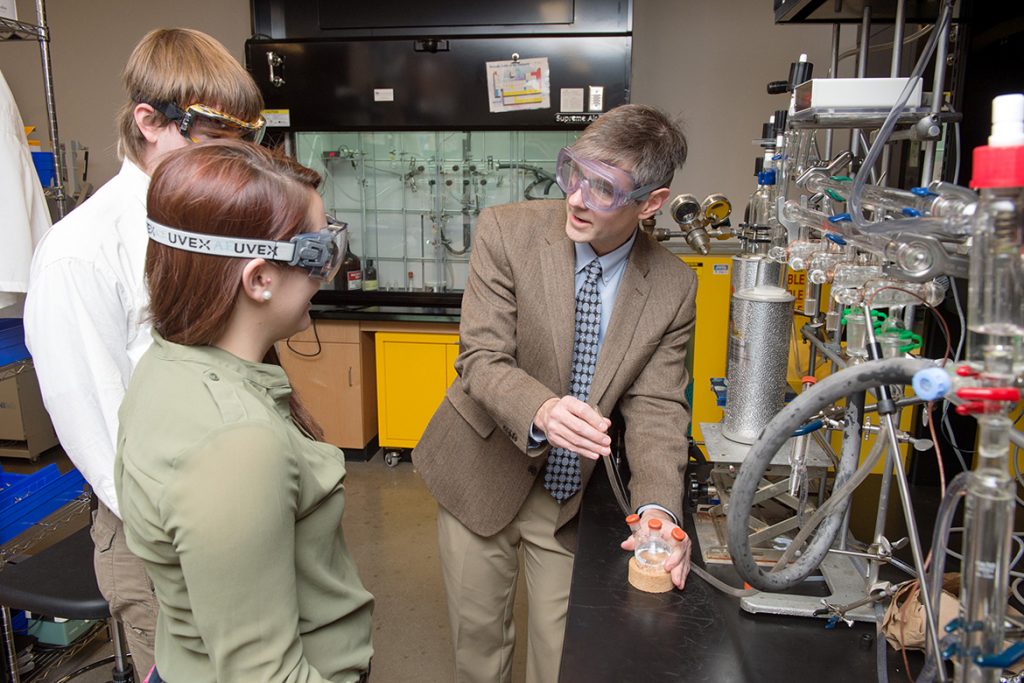
Van Patten shares his thoughts and vision for the college:
Q: How is Year 2 going?
A: It’s going well. I’ve settled in. I’m more comfortable with the job now and feel like I have developed a clear understanding of the academic cycle. There are still significant challenges and ambitious goals we are striving for, but I am starting to feel like we are moving forward toward those.
Q: Last fall, you held a State of the College meeting. What’s the overall state of CBAS?
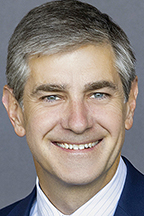
A: Enrollment has remained strong for our college. This says a lot about our attractive programs that prepare students for stable, lucrative, 21st century jobs. We are rapidly growing our research productivity. We have invested in facilities, equipment and a new generation of bright, energetic faculty who are attracting millions of dollars in external research funding annually. We intend to build on these strengths for the future … and adapt to ongoing changes.
With the pandemic came a seismic change in the expectations of students regarding availability of options for online learning. This presents challenges for schools of science and engineering, where hands-on learning is so important. Many of our departments are looking at creative ways to build online learning opportunities to make programs as flexible as possible for our students.
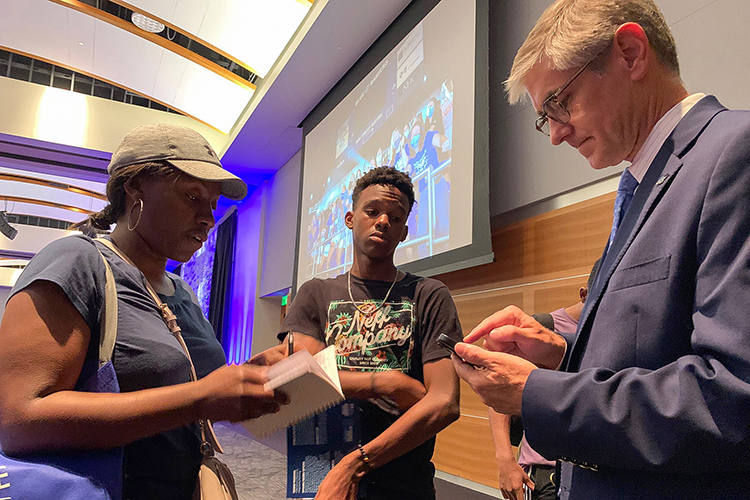
Q: What are some accomplishments?
A: Our new Data Science programs are thriving, with enrollment at both the undergraduate and graduate levels exceeding expectations. Our new School of Concrete and Construction Management Building opened. We will break ground on the new Applied Engineering Building this semester and we have secured important commitments of private donations, both from individuals and from industry, to support the project. Finally, we are nearing completion on the design plans for the renovation of Kirksey Old Main.
We’ve had many individual faculty achievements — six with national implications, two universitywide awards and three Dean’s awards. About a dozen students earned national or university recognition, including the President’s Award (former SGA President Winton Cooper) and Provost’s Award (Kap Paull). Every department had notable accomplishments. Our inaugural CBAS STEM Camp attracted 30 high school students and we’re excited about prospects for this summer (week of June 19). Alumnus Colton Gray became the first graduate of the Delta Propel program (accelerating the pathway to Delta Air Lines pilot and mechanic jobs).
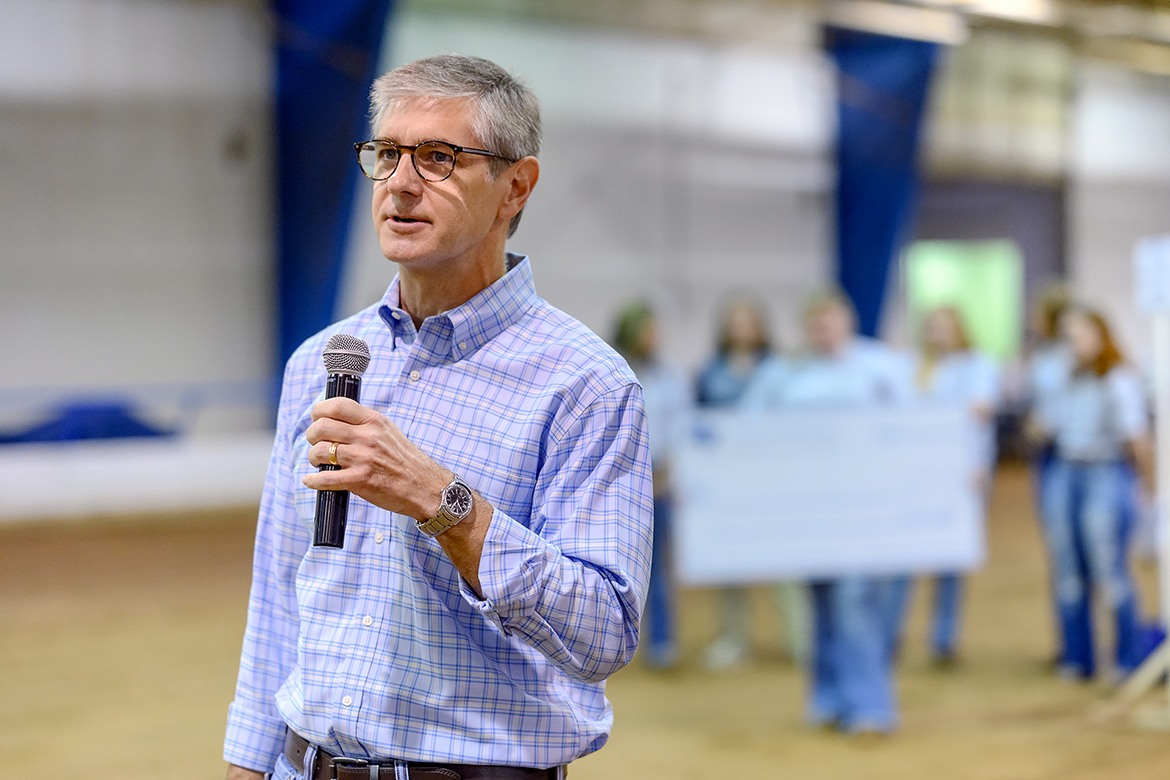
Q: What are major goals?
A: Developing and implementing a five-year strategic plan that begins this fall. Complete the facilities’ improvements and, with enrollment, maintain the same trajectory we’ve had for 10 years.
Q: With $62.5 million in state appropriations, it was announced MTSU would move its Flight Operations Center from Murfreesboro Airport to Shelbyville because of growth for both the Aerospace program and the city. When will this happen?
A: We are still working together with the city of Shelbyville to finalize the plans for our flight training campus there. We have made a lot of progress, but it is a complicated project with many bureaucratic hurdles, so it has been slow going. I sincerely hope we begin basing some of our aircraft in Shelbyville in 2023.
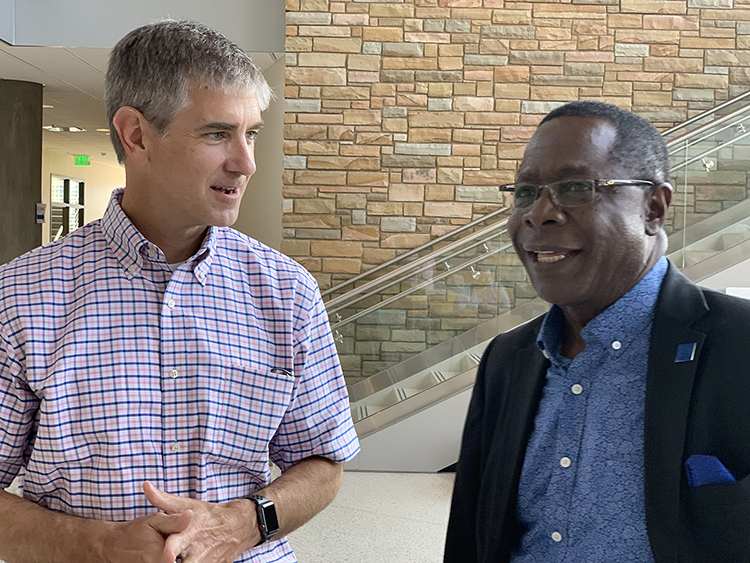
Q: With a Carnegie R2 (high research activity) status announced in 2022, a greater priority has been placed on research. What’s your philosophy?
A: Research has always been and remains a priority. Research funding growth remains an objective, but the real ‘gold’ here is the generation of new knowledge and the impact research has on our students’ learning. As part of that expansion, I want to use that growth in research funding to help grow our graduate programs in the college.
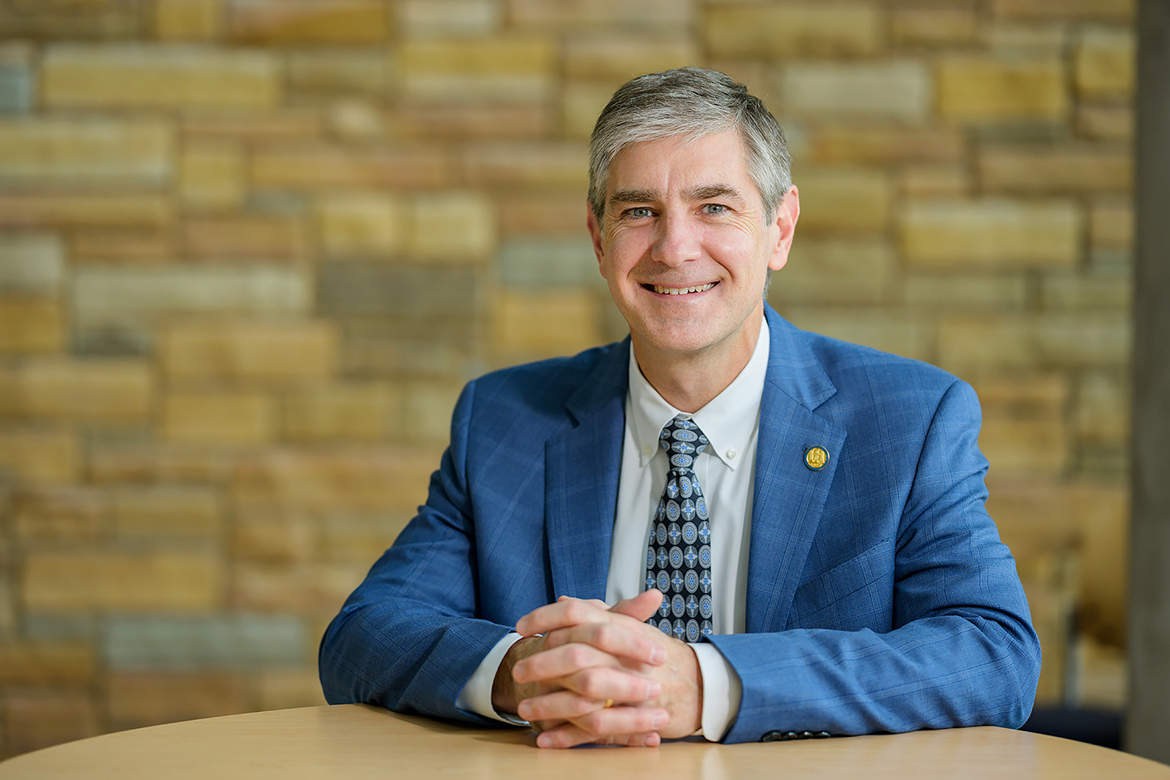
Q: What’s your strategy on student development?
A: We attract a wide range of students from different backgrounds and with different kinds of preparation. We have a mission to serve every student who comes here by doing what we can to help them reach their potential, and we have become very good at that. We have faculty who use innovative teaching methods in their classrooms to involve students in learning.
Our faculty incorporate active learning and numerous examples of experiential learning to prepare our students. These include research opportunities, laboratory courses in the sciences, internships at companies, opportunities to work on development of computing tools like the MTSU Mobile App and the Class Scheduler, work experiences and internships on the farm, at the MTSU Creamery, at the Horse Science Center and participation in running our airport operations. We supply the local workforce with well-prepared graduates, and we expose them to scholarship (learning at a high level), creative activity and research. If we hold on to these things, those can be our guiding pillars.
— Randy Weiler (Randy.Weiler@mtsu.edu)
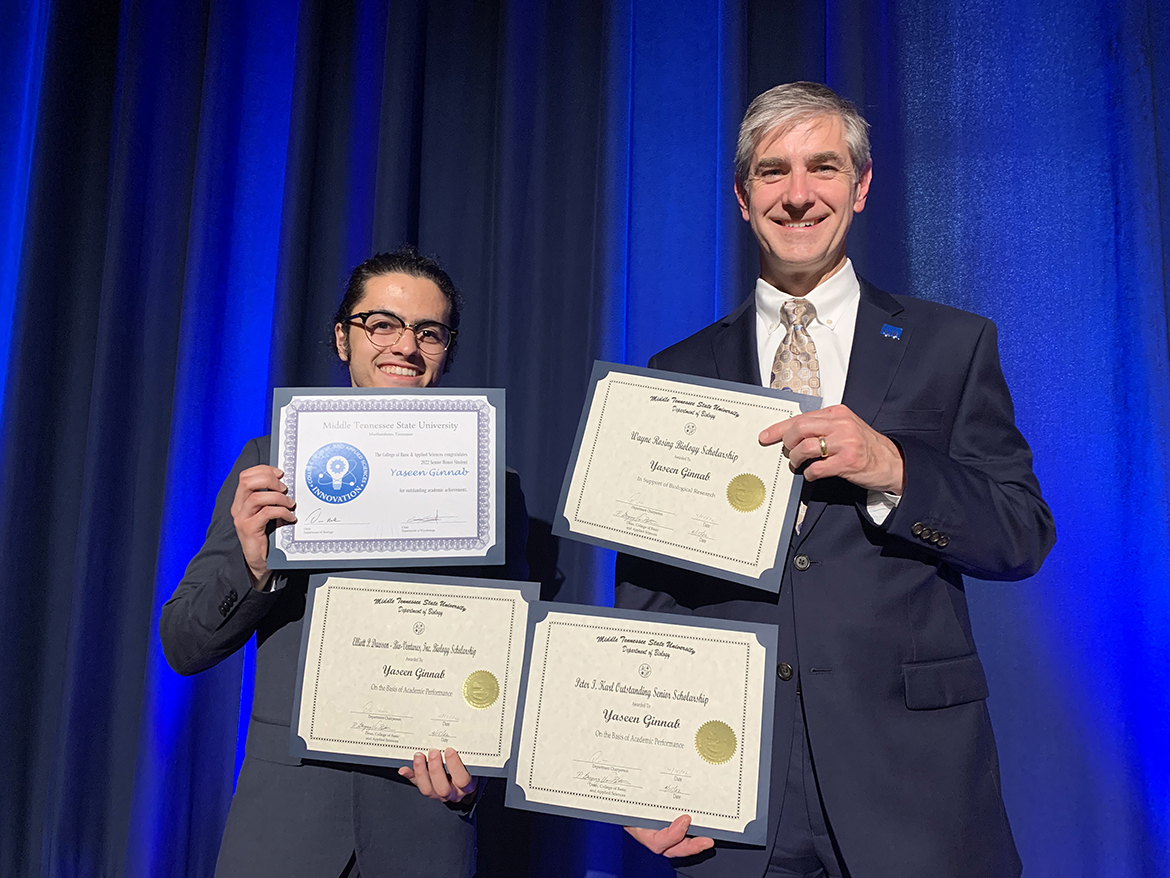

COMMENTS ARE OFF THIS POST